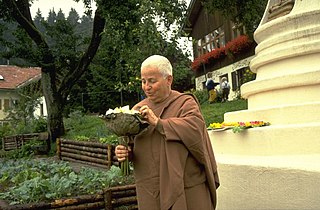A Quote by Eckhart Tolle
The most common ego identifications have to do with possessions, the work you do, social status and recognition, knowledge and education, physical appearance, special abilities, relationships, person and family history, belief systems, and often nationalistic, racial, religious, and other collective identifications. None of these is you.
Related Quotes
What we often take to be family values--the work ethic, honesty, clean living, marital fidelity, and individual responsibility--are in fact social, religious, or cultural values. To be sure, these values are transmitted by parents to their children and are familial in that sense. They do not, however, originate within the family. It is the value of close relationships with other family members, and the importance of these bonds relative to other needs.
Identitarianism assumes that people are condemned to identify with the positive (ethnic/ gender/ nationalistic) predicates they possess, as if their subjectivity were exhausted by those properties. Exactly the opposite is the case: the authentic dimension of subjectivity consists not in any positive identity but in that which makes identifications.
Almost all education has a political motive: it aims at strengthening some group, national or religious or even social, in the competition with other groups. It is this motive, in the main, which determines the subjects taught, the knowledge offered and the knowledge withheld, and also decides what mental habits the pupils are expected to acquire. Hardly anything is done to foster the inward growth of mind and spirit; in fact, those who have had the most education are very often atrophied in their mental and spiritual life.
Traditionally in American society, men have been trained for both competition and teamwork through sports, while women have been reared to merge their welfare with that of the family, with fewer opportunities for either independence or other team identifications, and fewer challenges to direct competition. In effect, women have been circumscribed within that unit where the benefit of one is most easily believed to be the benefit of all.
We ... tend to evaluate others on the basis of physical, outward appearance: their "good looks," their social status, their family pedigrees, their degrees, or their economic situations. The Lord, however, has a different standard by which he measures a person. When it came time to choose a king to replace King Saul, the Lord gave this criteria to his prophet Samuel: "Look not on his countenance, or on the height of his stature; ... for the Lord seeth not as man seeth; for man looketh on the outward appearance, but the Lord looketh on the heart."
The ghostly presence of virtual particles defies rational common sense and is nonintuitive for those unacquainted with physics. Religious belief in God, and Christian belief that God became Man around two thousand years ago, may seem strange to common-sense thinking. But when the most elementary physical things behave in this way, we should be prepared to accept that the deepest aspects of our existence go beyond our common-sense intuitions.
We judge others instantly by their clothes, their cars, their appearance, their race, their education, their social status. The list is endless. What gets me is that most people decide who another person is before they have even spoken to them. What's even worse is that these same people decide who someone else is, and don't even know who they are themselves.
Earthly families all look different. And while we do the best we can to create strong traditional families, membership in the family of God is not contingent upon any kind of status - marital status, parental status, financial status, social status, or even the kind of status we post on social media.
A … difference between most system-building in the social sciences and systems of thought and classification of the natural sciences is to be seen in their evolution. In the natural sciences both theories and descriptive systems grow by adaptation to the increasing knowledge and experience of the scientists. In the social sciences, systems often issue fully formed from the mind of one man. Then they may be much discussed if they attract attention, but progressive adaptive modification as a result of the concerted efforts of great numbers of men is rare.

































